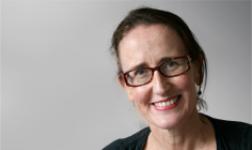REVELATIONS that a Victorian provider of educational programs for “gifted” children had also been offering anti-vaccination advice made headlines around the world last week.
Pat Slattery, founder of the WiseOnes business, had made claims about a link between vaccines and autism as well as inviting parents to email her for vaccination exemption forms in (now removed) posts on her website, The Age reported.
Offering to help educate children of vaccine refusers online, Ms Slattery said she was concerned about vaccines because “we know how much more sensitive gifted children are due to their extra neurological connections”.
“Giving them neurotoxins seems illogical.”
Gifted children, she claimed, “grow extra neurological connections at 140% the rate of average people from conception,” making them especially vulnerable to vaccine-related harms.
- Related: MJA InSight — Vax hesitancy challenge
- Related: MJA InSight — Call to improve vaccination communication
- Related: MJA InSight — Jane McCredie: Anti-anti-vax
Ms Slattery’s unusual claims do not end there. In a post on her website last year, she raised concerns that gifted children might be particularly vulnerable to harm from exposure to Wi-Fi and other sources of radiation.
She herself had almost been killed by radiation from her own, now removed, smart meter, she wrote, saying that “gifted professors have suggested that and [sic] IQ over 160 would be the cause of suffering from this radiation”.
And she has evidence: “all the people I know who are suffering seem to have that sort of brain too. A recent survey has confirmed this.”
For the gifted children in her care, the implications were even more horrifying.
“If you have a very clever child beware – thinner skulls and more moisture for the microwaving,” she wrote.
You might wonder why parents were not warier of entrusting their little geniuses’ soggy brains to Ms Slattery’s WiseOnes program.
To be fair, the fee-paying program was being offered in a number of Victorian state schools and parents might reasonably have felt they could assume it, and the people behind it, had been thoroughly vetted.
Education authorities clearly have some questions to answer.
But maybe we should also question our sometimes unseemly desire to get our children into these kinds of programs.
We all want to think our own little Charlottes and Olivers are special. And they are. To us.
But the proportion of children identified as gifted in the playground of your average inner city school might well strain credulity.
In the circles I move in, I’d be more surprised to meet a parent who told me their child wasn’t gifted than the other way around.
I’m not suggesting for a moment that gifted children should not receive targeted services and support. In an ideal world, all children, at all levels of ability, would receive an education that met their particular needs.
But all those parents who are so desperate to discover their own child’s giftedness do create opportunities for the greedy, unscrupulous or just plain wacky.
It’s not hard to find organisations online that sell assessments for your gifted child followed by customised learning plans if the child qualifies (which, you might suspect, they mostly do).
One site I came across offered a preliminary assessment via a quiz for the parent, asking among other things if their child had an extensive vocabulary, showed compassion or had a high degree of energy.
When I answered “very true” to all of the questions, I was told my child was “likely highly gifted” and given a number to ring to book an assessment.
When I redid the test answering “not true” to every question, I was told my responses were “not necessarily indicative of giftedness” but that I should still ring them if I saw “other indications of giftedness”.
Which presumably I did, since I had bothered doing their ridiculous quiz in the first place.
I can’t help thinking that a more accurate response to my first go at the test might have been: “you obviously really want your child to be considered gifted. Please contact us to arrange a psychological assessment of your need to have your child classified in this way”.
But I guess they wouldn’t make any money from that.
Jane McCredie is a Sydney-based science and medical writer.

 more_vert
more_vert
There should be a law against these ppl. If a child becomes sick or dies from an infection that would otherwise have been prevented by the routine vaccinations as a result of advice from these people, then they should be held accountable and charged in the court of law for their involvement in advising the children’s parents to not vaccinate the children.
How does this woman sleep at night?
If it is only the gifted who risk these “harms” then Pat Slattery has absolutely nothing to fear!